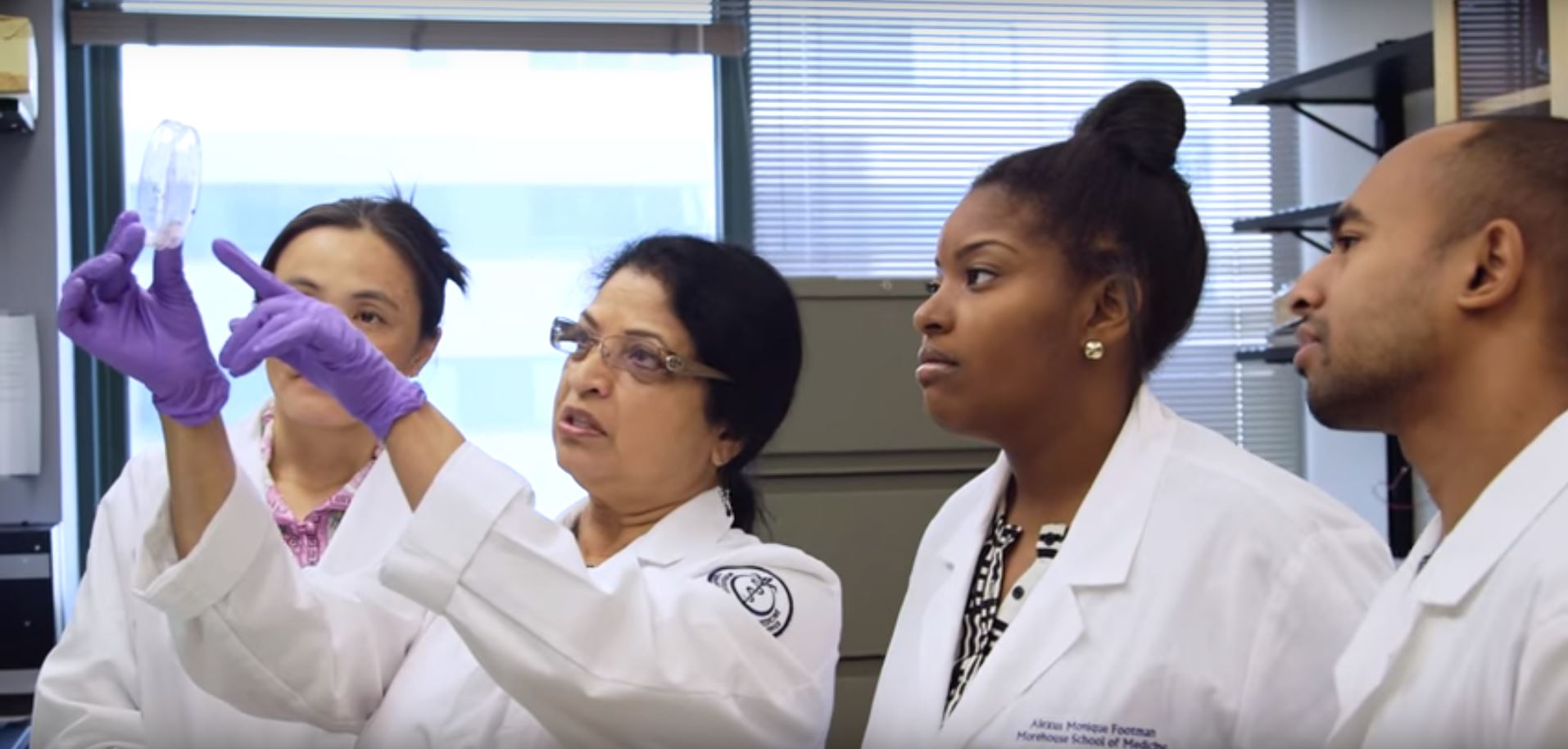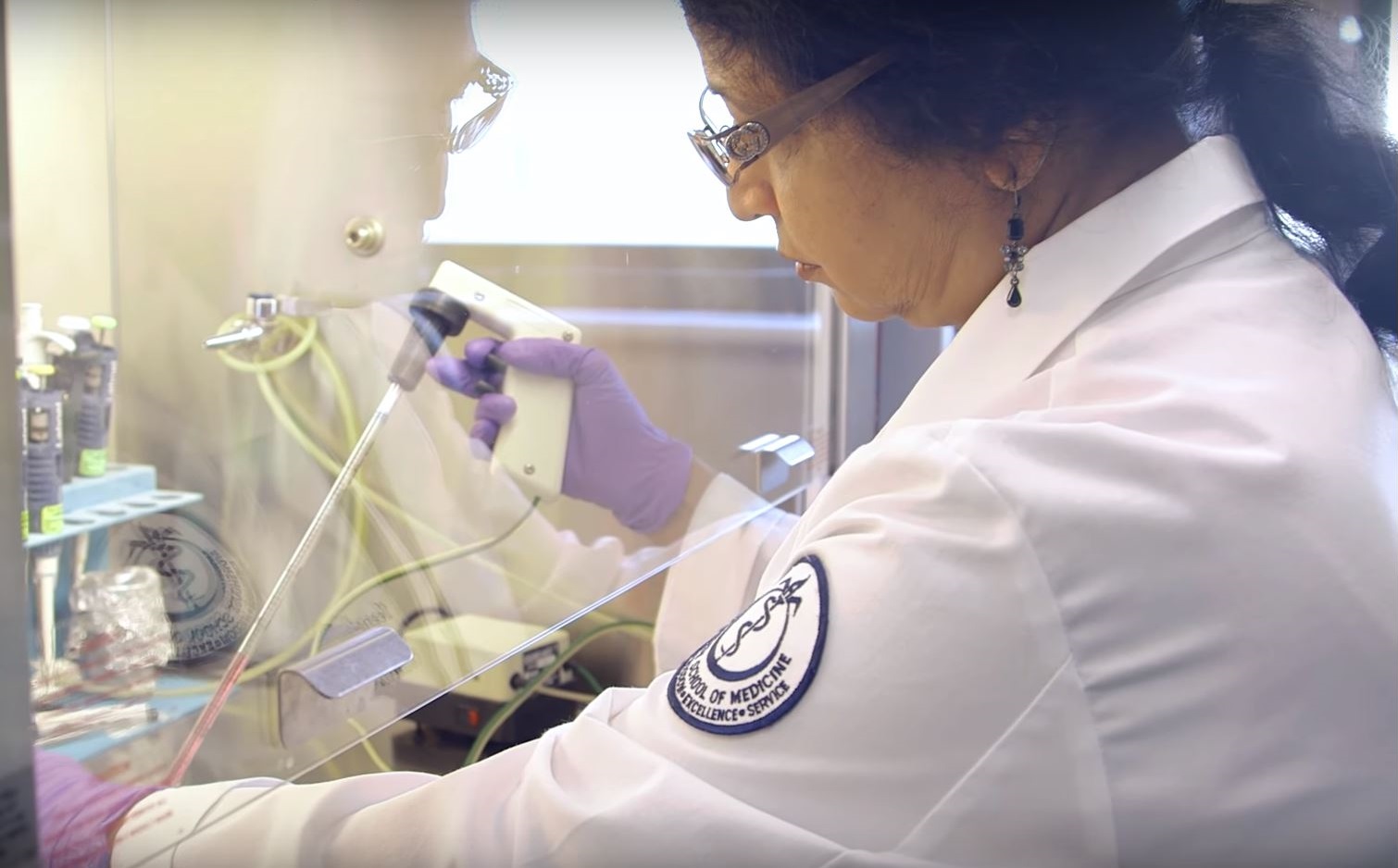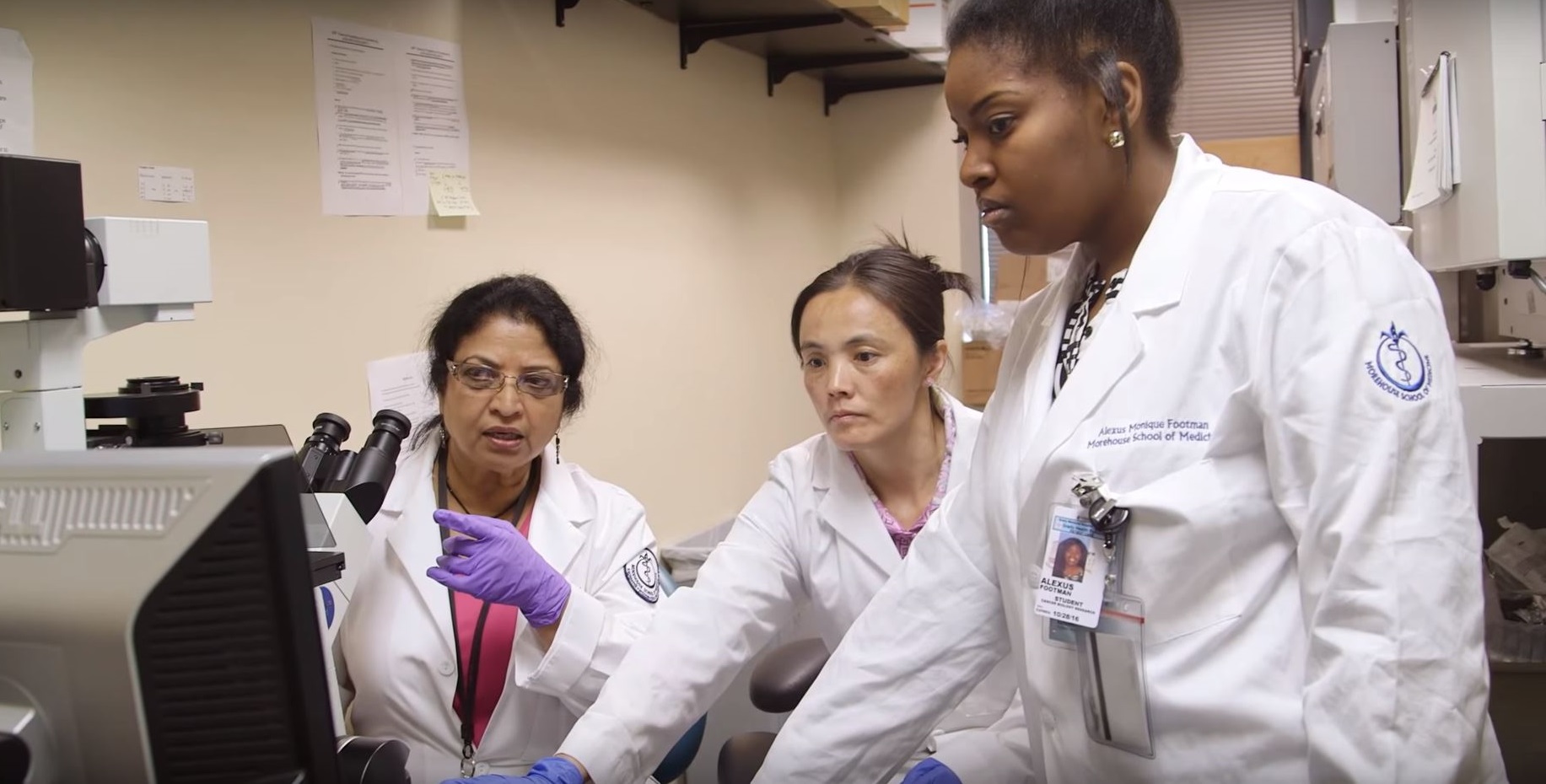Demystifying BRCA1 in African-American Women to Save Lives
By Jennifer Jiles
 Morehouse School of Medicine (MSM) physicians, faculty and students are engaged in
an intense and mission-driven quest to solve answers to some of the world’s most pressing
cancer-related questions.
Morehouse School of Medicine (MSM) physicians, faculty and students are engaged in
an intense and mission-driven quest to solve answers to some of the world’s most pressing
cancer-related questions.
One specific group of African Americans is driving MSM professor and co-director of the Cancer Biology Program in the OB/GYN department Veena Rao, Ph.D., who has spent the better part of her scientific career trying to understand the BRCA1 gene and its mutations in order to facilitate early detection and achieve novel treatment breakthroughs for women with breast cancer. Research she and her team are conducting has the potential to not only change lives, but save lives.
Breast cancer is the second-most common cause of cancer-related death, after lung cancer among African-American women. For these women, particularly those in underserved communities, the disease is exacerbated by factors such as fewer screenings, unsalutary living environments, and decreased access to healthcare, all of which lead to a strenuous battle between life and death.
African Americans are more likely to experience health care inequities, ill health,
develop complications, and die from cancer than any other racial or ethnic group in
the United States. Two important factors that could also contribute to a higher mortality
rate in African-American women are a high prevalence of BRCA1 mutations and lack of
targeted therapy to address them.
CA1 Variants and Triple Neative Breast ancer
BRCA1 Variants and Triple Negative Breast Cancer

In patients with TNBC, their tumor cells do not express the estrogen receptor, progesterone
receptor, and epidermal growth factor receptor-2 (also known as Her-2). Since successful
breast cancer treatments tend to target these three receptors, lack of these receptors
can severely limit the treatment options for these women. Even if some of these women
respond to some treatment, the disease is very likely to reappear. There are currently
no treatments that specifically target TNBC, and Dr. Rao is on a mission to change
that.
Mystery of Why? How? BRCA1 Mutation Results in TNBC Development Solved
Dr. Rao, whose laboratory is housed at the Cancer Biology Program at the Georgia Cancer Center for Excellence at Grady Memorial Hospital, has been leading a team of diligent scientists in investigating the inner workings of the BRCA1 gene for the past 22 years. Rao’s team was the first to discover the different forms of BRCA1 and show they can induce cell death in breast cancer cells. Her team was also first in introducing BRCA1a (a variant of BRCA1) into TNBC cells and ovarian cancer cells by gene therapy, successfully blocking tumor development in mice.

“If the cancer can be detected early, we can close the health disparity between African-American
women and white women,” said Dr. Rao.
BRCA1 and TNBC: Breakthroughs That Will Have Long Term Implications in Mechanism-Based Cancer Diagnostics and Therapeutics
Currently available cancer screening tests search for the BRCA1 gene mutations using blood and saliva DNA to assess the risk or probability of developing the disease. The results of this screening can be negative (no mutations), positive for pathogenic mutations (one or more), or uncertain VUS (variants of uncertain significance). As it turns out, most African-American women who get tested fall into the VUS category, which can be confusing to the clinicians as they cannot rightly interpret the results and counsel patients accordingly. This in turn generates uncertainty and anxiety for the patients.

“This technology, when fully developed and combined with BRCA1 genetic testing, will revolutionize early detection of hereditary TNBC and ovarian cancer, foster development of novel therapies, and prevent countless deaths due to these aggressive cancers,” said Dr. Rao.
More recently, Dr. Rao’s team has identified potential early biomarkers for cancer
progression (including recurrence and metastases), which can lead to better prognosis
for the patients. Once these biomarkers are fully identified, they can be targeted
by new drugs, thus prolonging the survival of women with TNBC, creating health equity
and saving lives.
The Focus: Health Equity
The work of Dr. Rao and her team is contributing to MSM’s commitment to lead the creation and advancement of health equity.
Lack of access to screenings and diagnostic, therapeutic and preventative measures, especially as they relate to cancer, is a major gap to creating health equity in underserved communities. Ensuring people in those communities have access to measures that screen for cancers at the primary care level and specialty level is critical to decreasing mortality in African Americans.
In addition to these measures, a major element MSM’s effort to close the access gap is its commitment to increasing the number of minorities in medicine, health professions, and the scientific workforce. Dr. Rao’s intense passion for bringing diverse students into scientific careers is an integral part of her work in ensuring diverse health care professionals are part of research, particularly in areas related to breast cancer in African-Americans. She has been recognized with an award for her outstanding commitment to mentoring diverse scientists.
“The focus of my research is on training minorities in cancer health disparities research,” she said. “This is to bridge the gap in cancer health disparities among minority women and white women. Closing the health gap is the mission of Morehouse School of Medicine.”
